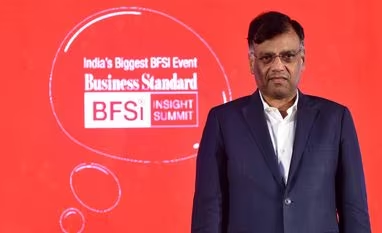The Unified Payments Interface (UPI) has become a widely adopted digital payment platform in India and is increasingly gaining international recognition. Building on the success of UPI, T Rabi Sankar, Deputy Governor of the Reserve Bank of India (RBI) on Thursday (November 6) introduced the Unified Lending Interface (ULI), a public-sector infrastructure project aimed at democratising access to lending for the private sector.
Much like UPI’s role in transforming digital payments, ULI is set to provide a universal lending platform where private entities can innovate within a structured regulatory framework. “ULI will be in the lending space what UPI is in the payments space,” Sankar said. He was speaking on the public infrastructure for lending in India at the Business Standard BFSI Summit in Mumbai’s Jio World Centre.
Speaking about the potential impacts of Donald Trump winning US elections, he said India’s economic fundamentals and foreign exchange place the country in a strong position to manage any currency volatility, said the RBI Deputy Governor. “While short-term market fluctuations are likely, the larger impact will hinge on US policies, such as tariffs and fiscal strategies, as well as geopolitical developments,” said Sankar during his keynote address on Day 2 of the summit.
Future of UPI and its global reach
Sankar also highlighted UPI’s role in enhancing economic efficiency and expressed optimism about expanding its reach to offline users and feature phone users. He said that the RBI is actively working to link UPI with other countries, aiming for global acceptance that would allow Indians abroad to make payments using UPI. Sankar underscored the importance of sustaining UPI’s growth momentum to maintain its relevance on the global stage.
The RBI Deputy Governor said while UPI’s growth has not yet reduced currency circulation in absolute terms, it has slowed the growth rate of physical currency. As digital payment adoption rises, a decrease in cash usage may follow over time, he said.
Addressing UPI fraud
The increase in UPI transactions has also brought along a rise in fraud cases. However, Sankar observed that the rate of fraud incidents per transaction is stabilising.
He attributed many fraud cases to compromised user credentials and emphasised the need for public awareness and digital hygiene to curb fraud. The RBI is exploring technological solutions to strengthen fraud prevention measures and enhance transaction security.
AI and its impact
Responding to a question on how artificial intelligence (AI) is impacting the financial sector, Sankar said it as a transformative technology that could replace human efforts altogether. Given the rapid pace of AI adoption, he advocated a cautious, sandboxed approach to its implementation.
“The speed of AI adoption is so fast that it becomes hard for society to keep pace. Therefore, a sandbox approach to AI implementation is advised,” he said.
RBI’s role in regulating fintech
On the question of fintech regulation, Sankar clarified that the RBI primarily oversees fintech companies involved in lending. However, he acknowledged that other fintech services indirectly impact the financial sector, necessitating some level of regulatory oversight. He also maintained that regulation should not stifle innovation within the fintech sector. “The idea is not to impose restrictive measures but create a balanced environment for growth,” said Sankar.
Prospects of CBDC pilot
Sankar explained that the RBI’s pilot project on Central Bank Digital Currency (CBDC) aims to explore its potential benefits and challenges. Despite the slow rollout, Sankar reaffirmed the RBI’s commitment to understanding CBDC’s role as a new form of currency. “Although CBDC does not offer interest, it combines the benefits of both digital and physical currency, making it a promising tool for the future,” he said.
On European Securities and Markets Authority
In response to European Securities and Markets Authority’s decision to delist India’s Clearing Corporation of India Limited (CCIL) in 2022, Sankar likened ESMA’s demands to a neighbour insisting on intrusive safety checks. He said, “Suppose, there are two kids in a neighbourhood. The parent of one of the kids tells you that his kid will come to your house to play with your kid only if you have some particular gadgets in place to ensure safety. Not just this, he says he will also check your house for safety measures periodically. What would anyone do in this scenario?”
Sankar asserted that ESMA’s demands overreach its jurisdiction and infringe on India’s sovereignty. He added that the RBI is unwilling to comply with current terms that compromise national interests.
)